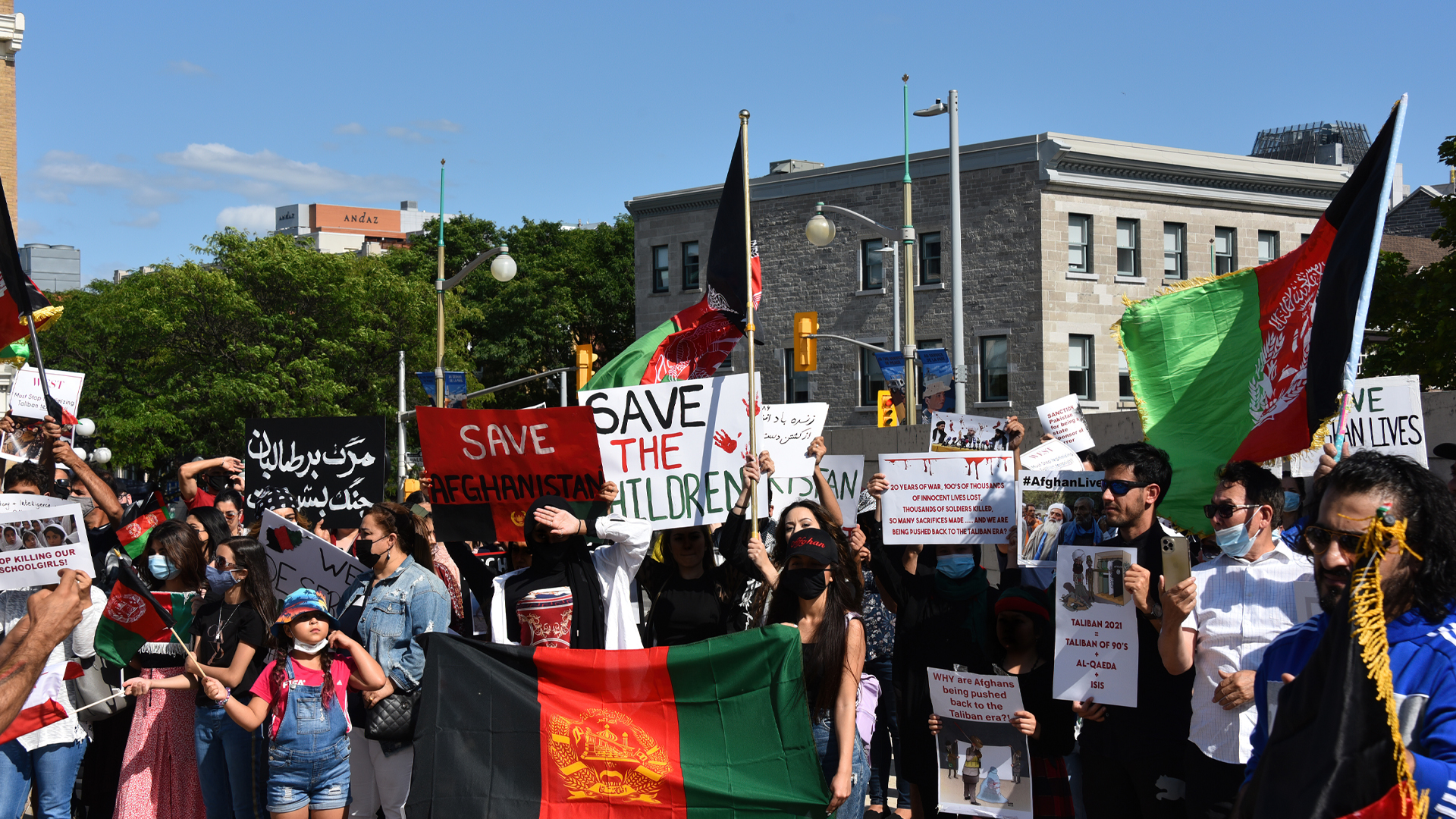
Over the course of the pandemic, “home” has taken on added meaning as people across Canada navigate public health guidance to stay home, work from home and learn from home. Yet not everyone has equal access to housing that supports educational achievement, economic participation or even physical distancing.
Refugee claimants are one group that face particular challenges. In Toronto, for example, they experience two underexplored barriers to securing stable housing.
First, most private sector landlords are unwilling to consider potential renters without a credit score.
Second, many families feel pressured to share stories of their trauma to increase the chance of being accepted as tenants. Unable to provide Canadian financial history, some refugee claimants compensate by divulging personal and painful stories about displacement to prove to landlords that they are “worthy” renters.
The way landlords assess the eligibility of prospective tenants can lead to discrimination. Refugee claimants may have reliable incomes through social assistance and the support of settlement workers ready to provide a reference. Yet without a credit check, few property management companies are willing to accept a rental application from them.
The value of social structures for new refugees: Lessons from the Syrian experience
Collaborative research led by Techfugees Canada and Romero House with representatives of the Canadian Mortgage and Housing Corporation (CMHC), the Greater Toronto Apartment Association and other settlement organizations outlines the challenges that displaced people face while searching for housing, but also uncovers potential solutions.
First and foremost, refugee claimants need alternatives to market housing. For instance, Romero House provides 10 transitional apartments in which families can stay. The fact that settlement workers have recently had to extend leases beyond the typical one-year period because families are unable to find long-term housing confirms the severity of the problem. Romero House’s policy of allowing refugee claimants to stay for a year is also unusual: the average stay for other settlement housing organizations is about three months.
Refugee claimants and other shelter users are navigating a housing sector defined by a generation of disinvestment in publicly funded, rent-geared-to-income housing. It’s a problem that is too complex for settlement organizations to solve alone. Instead, improving the housing conditions of refugee claimants and other vulnerable renters requires co-ordinated action from all levels of government.
One of the barriers facing low-income families, including many refugee claimants, is that income support has not kept pace with housing prices. A family of four on Ontario Works – a program for those in financial need who are willing to work – receives a monthly shelter allowance of $756, but the average rent for a two-bedroom apartment in Toronto is $1,661. Ontario and other provinces must bring social assistance in line with the cost of living.
Raising household income is only part of the solution. If rents continue to be set by landlords looking to turn a profit for investors, then affordability and safety will continue to be a struggle for tenants. Similarly, landlords’ insistence on credit checks would be less of a barrier for refugee claimants if there were robust non-market housing options available. Renewing the social housing safety net is essential to supporting the health, education and employment outcomes of the 24 per cent of households across Canada spending more than 30 per cent of their income on shelter.
The Federation of Canadian Municipalities and others have already called for urgent investment to enable the acquisition and conversion of existing buildings for housing. The CMHC rapid-housing initiative is a step in the right direction but demand for funding has quickly exceeded supply.
Conversion of existing buildings for housing has been employed on a short-term basis to support displaced people. Starting in 2015, the federal government paid for hotels to accommodate some government-sponsored Syrian refugees. A similar strategy is being used to house some people fleeing Afghanistan. Over the course of the pandemic, hotels in some cities have also been used to enable physical distancing and supplement the crowded conditions of homeless shelters.
These experiments have been criticized for offering limited social and cultural supports. Established non-profits with similar programming experience could provide leadership on housing conversions to address these gaps. The evacuation of a First Nations community to a London hotel during Ontario’s most recent forest fire season shows what’s possible when community groups co-ordinate culturally appropriate services for displaced families.
As Canada continues to deliver on its commitment to resettle 40,000 Afghan refugees, the need for housing will only become more urgent. Civil society has already shown how to support literacy, organize celebrations and furnish apartments in collaboration with refugees. Governments must match this leadership by stepping up to secure adequate, affordable housing.
Ottawa must work with provinces, territories and municipalities to ensure that refugees are not only welcomed to this country but are also able to find a home in the community of their choosing. Displaced families should not have to compensate for a lack of credit history by appealing to potential landlords with painful, personal stories.All orders of government have a role to play in developing regulations to reduce the predatory practices of “financial” landlords – corporations that acquire properties for investment purposes. Provincial governments must increase social assistance so that low-income households are not forced to choose between paying rent and buying food or accessing the internet. Most importantly, the federal government must call on its new housing minister and use its extensive fiscal tools to support the rapid creation of new social housing.











